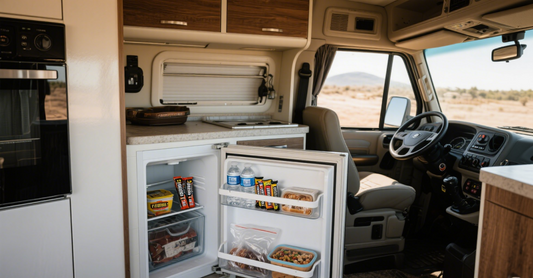How Much Does a Lithium Golf Cart Battery Weigh
Golf cart batteries power vehicles across courses, communities, and recreational settings, but their weight significantly affects ease of use, range, and performance. Understanding golf cart battery weight is essential for informed decisions about maintenance, upgrades, and daily operation. This article explores weight factors, compares battery types, and helps you make the best choice.


About Golf Cart Battery Weight
The weight of a golf cart battery varies significantly based on its type and specifications. Golf cart batteries typically include lead-acid (flooded, sealed, or AGM) and lithium-ion options.
Lead-acid batteries, the common type, weigh 50–80 lbs (22.7–36 kg) per unit, with 6-volt batteries ranging from 58 to 68 lbs (26–31 kg), 8-volt batteries from 60 to 100 lbs (27–45 kg), and 12-volt batteries from 55 to 85 pounds (25–39 kg).
Lithium-ion batteries, on the other hand, are lighter, weighing 20–100 lbs (9–45 kg) per unit, offering a 50–70% weight reduction compared to lead-acid counterparts.
Most golf carts use 4 to 8 batteries to achieve 36V or 48V systems, impacting total weight. A 36V lead-acid system with six 6V batteries weighs 360–480 lbs (163–218 kg), while a 48V lithium-ion system ranges from 70–200 lbs (32–91 kg). These differences arise from battery type, capacity (amp-hours, Ah), and manufacturing processes.
Types of Golf Cart Batteries
Golf cart batteries come in several types, each with unique weight and performance profiles, helping your select the best option for their needs.
Lead-Acid Batteries
Flooded: Require regular water top-ups, weighing 60–80 lbs (27–36 kg) due to dense construction.
Sealed (including AGM): Maintenance-free, weighing 55–70 lbs (25–32 kg). AGM batteries offer enhanced durability and vibration resistance, ideal for rugged terrains.
Lithium-Ion (LiFePO4) Batteries
Weigh 20–100 lbs (9–45 kg), with longer lifespans, faster charging, and no toxic lead or acid, making them environmentally friendly.
The table below common golf cart lithium batteries typical weights and capacities:
| Battery Type | Typical Weight (lbs/kg) | Common Capacity (Ah) |
|---|---|---|
| Flooded Lead-Acid | 60-80 (27-36) | 150-250 |
| Sealed Lead-Acid/AGM | 55-70 (25-32) | 150-200 |
| Lithium-Ion | 20-100 (9-45) | 20-150 |
What Factors Affect The Weight Of Golf Cart Batteries
Several factors determine how much a golf cart battery weighs, influencing performance and suitability.
- Battery Type: Lead-acid batteries are heavier due to lead plates and sulfuric acid. Lithium-ion batteries leverage high energy density and lighter materials, reducing weight.
- Capacity (Ah): Higher capacity batteries store more energy but weigh more. A 6V lead-acid battery with 200–225 Ah weighs 60–70 lbs (27–32 kg), while a 100 Ah lithium-ion battery may weigh 30–100 lbs (14–45 kg).
- Voltage and Configuration: 36V systems often use six 6V batteries, while 48V systems may use four 12V or six 8V batteries, affecting total weight.
- Manufacturing Processes: Frameless designs in lithium-ion batteries eliminate heavy metal casings, reducing weight without compromising strength.
- Cell Count: Lead-acid batteries typically have 6 cells, lithium-ion batteries vary from 6 to 12 cells, depending on design, impacting weight.
Weights of Common Golf Cart Lead Acid and Lithium Ion Batteries
Lead-Acid Batteries
- 1.6V: 58–80 lbs (26–36 kg), used in 36V systems (six batteries, 360–480 lbs or 163–218 kg).
- 2.8V: 60–100 lbs (27–45 kg), used in 48V systems (six batteries, 360–600 lbs or 163–272 kg).
- 12V: 55–85 lbs (25–39 kg), used in 48V systems (four batteries, 220–340 lbs or 100–154 kg).
Lithium-Ion (LiFePO4) Batteries
- 1.Single battery: 20–100 lbs (9–45 kg). Examples include a 36V 60Ah battery at ~43 lbs (19.5 kg), a 48V 30Ah at ~21 lbs (9.5 kg), and a 48V 100Ah at ~80–100 lbs (36–45 kg).
- Total weights: 36V systems at 70–200 lbs (32–91 kg), 48V systems at 120–300 lbs (54–136 kg).
Below is information about Temgo golf cart lithium batteries.
| Battery Model | Material | Weight | BIS | Energy | Size |
|---|---|---|---|---|---|
| 36V 100Ah Lithium Golf Cart Batteries | ABS Shell | 61.73 lbs | 3.84kWh | L20. 47W10. 59H8. 66 In | |
| 48V 100Ah Lithium Golf Cart Batteries | SPC Steel | 81.6 lbs | 200A | 5.12kWh | L15. 19W12. 64H In |
| 48V 100Ah Lithium Golf Cart Batteries | ABS Shell | 87.1 lbs | 5.12kWh | L13. 39W18. 11H. 84 In | |
| 48V 100Ah Lithium Golf Cart Batteries | SPC Steel | 99.2 lbs | 5.12kWh | L19. 12H84 In |
The weight of a lead-acid battery depends on the different ah capacity, plate thickness and casing material.
Compared to lead-acid batteries, they are 50-70% lighter, can be deep cycled 3000-5000 times, and can be charged faster.
Impact of Battery Weight on Golf Cart Performance
Battery weight can significantly impact golf cart driving performance and experience.
- Speed and Acceleration: Heavier batteries (e.g., lead-acid) may reduce speed and acceleration by approximately 5–10% per 100 lbs (45 kg), requiring more power.
- Maneuverability: Heavier batteries decrease agility on turns or inclines, impacting course navigation.
- Range: Heavier batteries reduce range by about 2–5% per 100 lbs (45 kg), though higher capacity may offset this. Lithium-ion batteries can extend range by 10–20% due to lower weight.
- Stability and Traction: Heavier batteries improve stability and traction on uneven terrain, beneficial for hilly courses.
- Component Wear: Heavier batteries increase strain on suspension and tires, raising maintenance costs.
Lighter lithium-ion batteries enhance speed, range, and handling while reducing wear, improving overall performance.
Golf Cart Lithium Batteries Maintenance and Handling Considerations
Proper maintenance and handling are critical, given the weight of golf cart batteries.
Lead-Acid Batteries
- Maintenance: Require watering, terminal cleaning, and equalizing charges every 4–6 weeks. Specialized recycling is needed due to toxic lead and acid.
- Weight Gain: Sulfation and plate expansion add weight over 2–5 years, affecting handling.
- Handling: Weighing 40–100 lbs (18–45 kg), use battery straps or tools to avoid injury or damage.
Lithium-Ion Batteries
- Maintenance: Maintenance-free, with stable weight over 3000–5000 cycles. Simpler disposal processes enhance environmental benefits.
- Handling: Lighter (20–100 lbs or 9–45 kg), easier to manage.
Also Read: How to Maintain Your Lithium Golf Cart Battery
If you do not have the relevant expertise, please seek professional help. The following table also lists commonly used handling tools:
| Tool Type | Compatibility | Purpose | Key Features |
|---|---|---|---|
| Battery Strap | Lead-Acid, Lithium-Ion | Secure Lifting, Removal | Durable, Adjustable, Easy to Use |
| Battery Changing Tool | Lead-Acid, Lithium-Ion | Extraction, Placement | Simplifies Process, Efficient, Reliable |
| Harness Belt | Lead-Acid | Support, Transport | Strong, Versatile, Secure Grip |
| Installer Tool Kit | Lithium-Ion | Installation, Adjustment | Practical, Handy, Multi-Functional |
Why You Need to Upgrade to Lithium Batteries for Your Golf Cart
Lithium-ion batteries, particularly LiFePO4, are safe for golf carts. Unlike lead-acid batteries, which risk acid leaks and hydrogen gas emissions, lithium-ion batteries are sealed and emit no gases.
LiFePO4 has a low thermal runaway risk, and Battery Management Systems (BMS) prevent overcharging, undercharging, and faulty cell operation, ensuring reliability. In addition, there are the following advantages:
- Longer Lifespan: 3000-5000 cycles vs. 200-500 for lead-acid.
- Faster Charging: 50-70% less time, ideal for frequent use.
- Consistent Power: Stable voltage for reliable performance.
- Cost Savings: Reduced replacements and maintenance.
- Environmental Benefits: No toxic materials.
Replacing lithium-ion batteries is also very simple. The replacement process involves removing the lead-acid battery, installing the lithium-ion battery, making secure connections, and ensuring charger compatibility (an upgrade to a lithium-ion charger can cost $100 to $300).
Fewer lithium-ion batteries are required for the same power, leaving more space that can be filled with inexpensive spacers to keep the cart balanced.
You can also simplify the entire upgrade process with a golf cart lithium battery conversion kit.
Choosing the Right Golf Cart Battery
Selecting the right battery balances compatibility, performance, and cost for an informed decision.
Compatibility
Check the cart’s manual for voltage, dimensions, terminal type, and Ah rating. Higher Ah extends run time but adds weight.
Weight vs. Power
Lead-Acid: Higher power and traction but heavier (220-640 lbs or 100-290 kg), increasing wear.
Lithium-Ion: Lighter (70-300 lbs or 32-136 kg), improving speed and range.
Cost Trade-offs
Lithium-ion batteries cost $500-$2000 upfront but save $1000-$3000 over 10 years. Lead-acid is cheaper initially but requires frequent replacements.
To help you better buy the best lithium battery, you can also read:
What to Know Before Buying a Lithium Battery for Your Golf Cart
The Ultimate Guide to Golf Carts 2025: How to Choose
Conclusion
Understanding golf cart battery weight is key to optimizing performance, maintenance, and cost. Different battery types have different weights, which can have a significant impact on a cart's speed, range, and efficiency.
Temgo Battery offers high-performance LiFePO4 golf cart batteries with features such as 3000-5000 cycles, 200A battery management system (BMS), Bluetooth monitoring, and IP67 waterproof housing. Lightweight models (e.g., 36V 100Ah, weighing 61.73 lbs) enhance cart performance, while Bluetooth and LCD display features ensure real-time monitoring and management of battery status 24/7. Explore Temgo 36V and 48V options for a greener, more efficient golfing experience.


